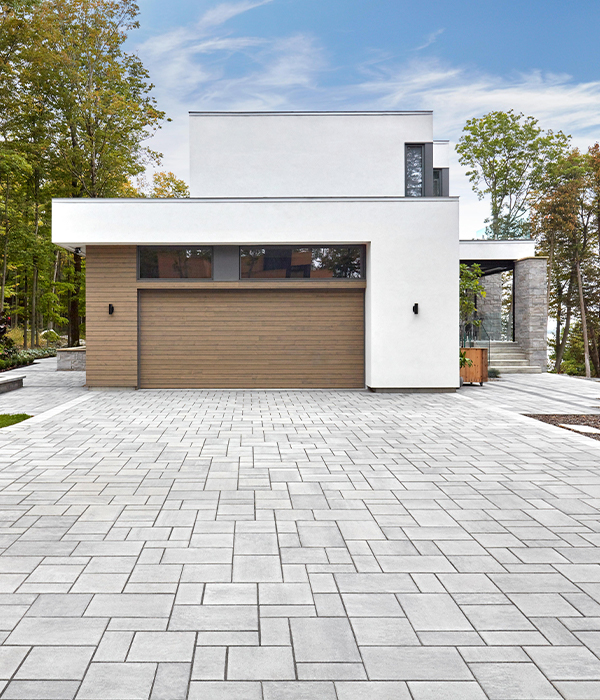When it comes to choosing between interlocking concrete and asphalt for your driveway, there are several factors to consider. In this blog post, we will explore the advantages of interlocking concrete over asphalt.
Design and patterns
Interlocking concrete offers a wide range of colors, textures, and dimensions, allowing you to create unique patterns and mosaics that enhance your home's curb appeal and make your front entrance stand out. On the other hand, asphalt only comes in plain black, limiting your design options.
Color Variety
Interlock provides a plethora of color options and textures that can complement and accentuate your home's existing colors and features. This variety allows you to create a harmonious and cohesive look, tying your front entrance to the overall aesthetic of your property.
Ease of repair
Interlock pavements are relatively easy to repair. If any damage, cracks, or spills occur, individual pavers can be easily removed and replaced with new units. By keeping spare units from the initial installation, you can swiftly switch out stained or damaged pavers when needed. In contrast, repairing asphalt is more challenging and often results in patches that may not match the original appearance.
Flexibility
Interlock paver systems are naturally flexible, allowing them to adjust with the movement of the ground during freeze-thaw cycles. This flexibility helps prevent cracks from forming on the pavers themselves, as any movement in the ground is absorbed by the seams between the pavers. On the other hand, asphalt is not as flexible and tends to crack and move with the ground, leading to visible cracks on the surface.
Property value
The aesthetic appeal of interlock is considered more visually pleasing than plain asphalt. Therefore, investing in an interlock driveway can increase the resale value and curb appeal of your home, making it a better long-term investment.
Durability
Interlock pavers generally last longer than asphalt and require less maintenance and repair over the years. The durability of interlocking concrete ensures that your driveway remains in good condition for an extended period, with fewer issues like potholes that are commonly associated with asphalt surfaces.
Costs in maintenance and repair
Interlock pavers typically require minimal maintenance, with occasional pressure washing being sufficient to keep them clean. On the other hand, asphalt driveways need to be sealed every 2-3 years to maintain their appearance and structural integrity, resulting in ongoing maintenance costs.
Considering all these factors, interlocking concrete emerges as a superior choice for driveway construction due to its versatility, aesthetics, durability, and lower long-term maintenance costs compared to asphalt. If you want a driveway that stands the test of time, offers various design possibilities, and requires less maintenance, interlock is the way to go.
READY TO MAKE THE NEXT MOVE?


